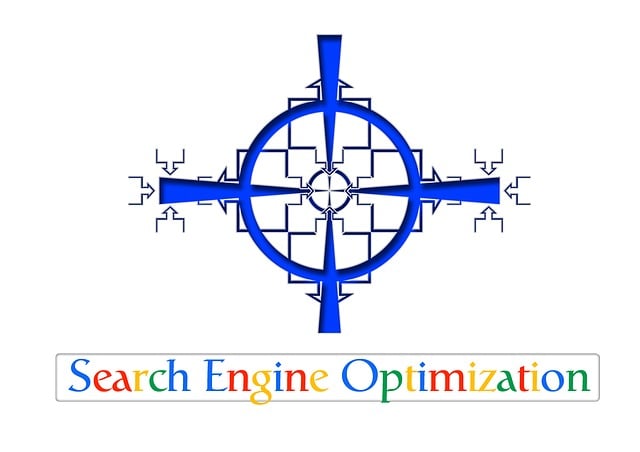Search Engine Optimization (SEO) is a comprehensive strategy to elevate a website's online profile. By employing various techniques like keyword research, on-page optimization, backlink building, mobile optimization, and technical enhancements, businesses can significantly boost organic traffic. The core focus is on understanding target audiences, creating high-quality content, optimizing site structure, earning credible backlinks, and ensuring user-friendliness. Regular tracking and analysis of SEO metrics are vital for refining strategies and keeping up with search engine algorithm changes, ultimately driving higher website rankings and increased visibility.
Looking to climb the ranks on search engines? Discover powerful SEO tips for ranking higher with this comprehensive guide. From understanding the basics of search engine optimization (SEO) and keyword research to mastering on-page optimization and building quality backlinks, we’ve got you covered. Learn how to refine your website’s content, structure, and user experience with essential technical SEO considerations. Track your progress using key metrics and watch your online visibility soar.
Understanding SEO: The Basics of Search Engine Optimization

Search Engine Optimization (SEO) is a set of practices designed to improve a website’s visibility and ranking in search engine results pages (SERPs). At its core, SEO involves understanding how search engines crawl, index, and rank websites. By implementing effective SEO strategies, businesses can attract more organic traffic from relevant search queries.
Key SEO tips for ranking higher include optimizing web content with strategic keywords, ensuring mobile-friendliness, building high-quality backlinks, enhancing site speed, and creating valuable user experiences. These practices help search engines understand the context and relevance of your website to specific searcher intents, thereby boosting its position in SERPs.
Keyword Research: Unlocking the Power of Relevant Terms

Keyword research is a fundamental step in any successful SEO strategy, and it’s a process that shouldn’t be overlooked if you want to rank higher on search engines. By understanding your target audience and what terms they use when searching for products or services like yours, you can tailor your content to better meet their needs. This ensures that your website becomes a valuable resource, increasing the likelihood of organic traffic and improved rankings over time.
When conducting keyword research, it’s essential to go beyond just popular search terms. SEO tips for ranking higher involve identifying long-tail keywords—more specific phrases that might have less competition but still reflect your business’s core offerings. These keywords can help you reach a more targeted audience who are actively seeking what you provide, resulting in higher conversion rates and better overall performance on search engine result pages (SERPs).
On-Page Optimization: Refining Your Website's Content and Structure

When it comes to on-page optimization, refining your website’s content and structure is a crucial step in boosting rankings with SEO tips for ranking higher. This involves ensuring that each page has relevant, high-quality content tailored to specific keywords and phrases that your target audience uses when searching. It also means optimizing titles, headings, meta descriptions, and image alt tags to be descriptive and keyword-rich without appearing spammy. A well-structured website with a clear hierarchy helps search engines understand the context of your content, making it easier for them to index and rank your pages higher.
Additionally, on-page optimization includes improving site speed, mobile responsiveness, and user experience. Google favors websites that provide a seamless browsing experience, so optimizing these aspects not only enhances SEO but also keeps visitors engaged. Incorporating internal linking strategies can also help distribute link equity throughout your site, signaling to search engines which pages are most important while providing users with easy navigation to relevant content.
Building Quality Backlinks: Earning Trust from Authority Sites

Building quality backlinks is a crucial SEO tip for ranking higher. When reputable and authoritative sites link to your content, it signals to search engines that your site is a credible and valuable resource. This trust-building process enhances your website’s authority, which in turn improves its visibility and rankings. Focus on creating high-quality content that naturally attracts links from influential websites within your niche.
Engaging in strategic outreach and building relationships with influencers can also help. Guest blogging, for instance, allows you to contribute valuable content to established sites, earning a link back to your own. Ensure these backlinks are contextual and relevant, as this further reinforces the trustworthiness of your site in the eyes of search engines, ultimately driving up your SEO rankings.
Technical SEO Considerations for Seamless User Experience

Technical SEO is an essential aspect of boosting your website’s rankings and providing a seamless user experience. One of the key focus areas is ensuring your site is mobile-friendly, as most users now access the internet via smartphones and tablets. Google prioritizes mobile usability, so optimizing for mobile search is crucial for ranking higher. Implement responsive design to adapt your site to different screen sizes, making it easy to navigate and read on all devices.
Another critical technical SEO consideration is improving site speed. Slow-loading pages can frustrate users and negatively impact your search engine rankings. Optimize images, minify code, leverage browser caching, and consider using content delivery networks (CDNs) to reduce page load times. These practices not only enhance user experience but also send positive signals to search engines, indicating that your website is high-quality and worth ranking higher.
Analyzing and Tracking Your Progress: Metrics for Measuring Success

Analyzing and tracking your progress is an essential part of any successful SEO strategy, offering valuable insights to refine and optimize your approach. By setting up comprehensive tracking systems, you can monitor key metrics that directly impact your website’s visibility and rankings. These include click-through rates (CTRs), which measure the effectiveness of your page titles and meta descriptions in attracting users; average session duration provides insight into how engaging your content is; and bounce rate indicates whether visitors are finding what they’re looking for on your site.
Additionally, keeping a close eye on organic traffic growth, keyword rankings, and backlink profiles offers crucial SEO tips for ranking higher. Regularly reviewing these metrics allows you to identify trends, pinpoint areas for improvement, and make data-driven decisions. This iterative process ensures that your SEO efforts stay aligned with search engine algorithms, ultimately driving better search rankings and increased website visibility.
